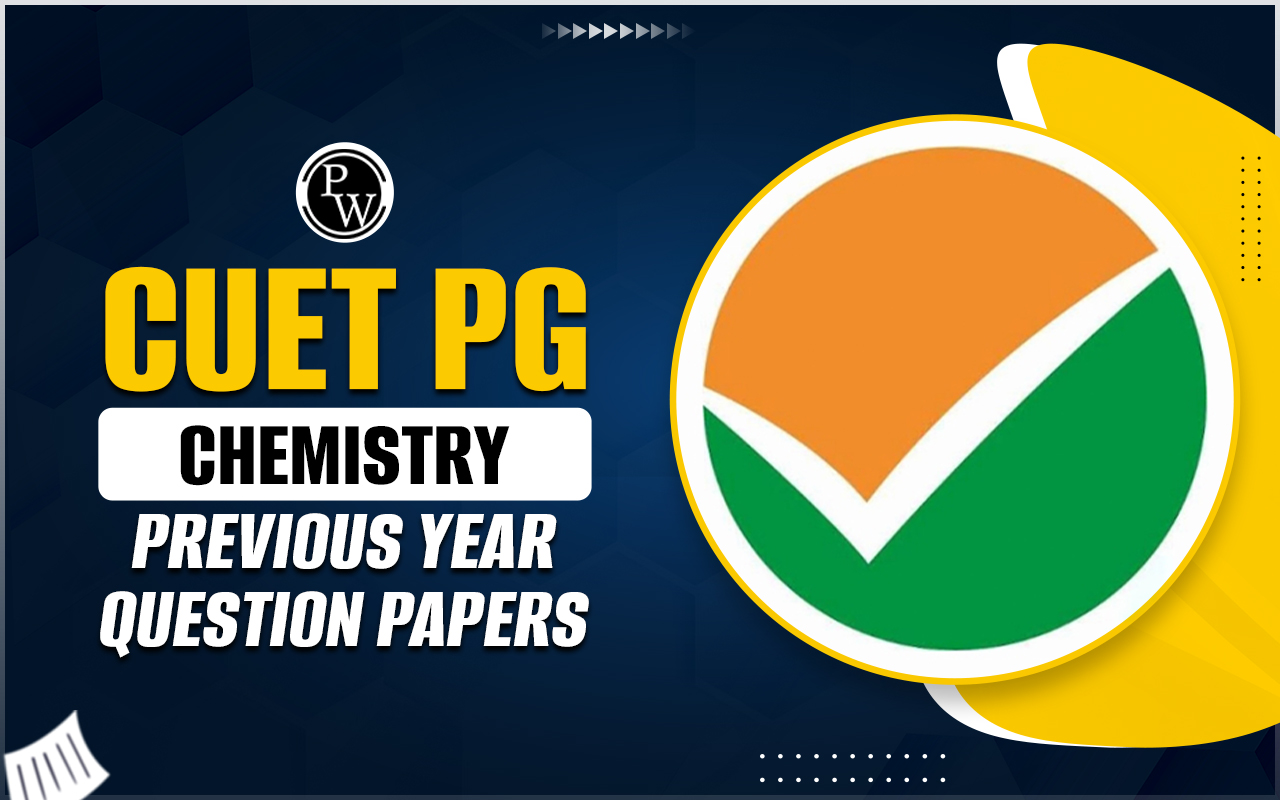
Here, aspirants can find information about the M.Sc Computer Science Full Form, syllabus, eligibility, admission process, books, and other details to help them make informed academic choices.
M.Sc Computer Science Overview
M.Sc Computer Science is one of the popular PG programs for technology enthusiasts who aim to improve their expertise in the field of computing. Each semester combines theoretical coursework, laboratory practice, and project assignments. The gradual structure makes sure that students move from fundamentals to advanced research within the limited timeframe.
Here is the detailed overview of an M.Sc degree in Computer Science course:
| M.Sc Computer Science Overview | |
|---|---|
| Course Name | M.Sc Computer Science |
| Duration | 2 Years |
| Course Level | Postgraduate |
| Eligibility | B.Sc. in Computer Science, IT, or related stream |
| Average Fees | ₹25,000 to ₹2,50,000 per year |
| Entrance Exams | CUET PG, TANCET |
| Starting Salary | ₹5 to ₹10 LPA |
| Career Roles | Software Engineer, Data Scientist, Lecturer, Researcher, IT Consultant |
Note: Course structures for M.Sc in Computer Science may have slight differences based on guidelines of Universities. However, the complete framework remains similar for institutions.
M.Sc Computer Science Eligibility Criteria
M.Sc Computer Science eligibility norms is always a helpful medium for those aspiring to pursue post graduate degree in computer science. The eligibility criteria ensure that only students with sufficient learning will get the opportunity to enter the program.
Here are the common eligibility norms related to admission in this PG course:
| M.Sc Computer Science Eligibility | |
|---|---|
| Criteria | Requirements |
| Educational Qualification | B.Sc. degree in Computer Science, IT, or equivalent |
| Minimum Marks | 50 to 60% aggregate at the undergraduate level |
| Age Limit | No specific restriction |
| Additional Requirement | Mathematics at the UG level |
M.Sc Computer Science Admission Process
The admission process for an M.Sc course in Computer Science is structured in a way that it strikes a balance between merit and capability. Here is the common admission process for most of the institutions:
| M.Sc Computer Science Admission Process | |
|---|---|
| Mode | Process |
| Merit-Based | Admission based on graduation scores |
| Entrance-Based | CUET PG, TANCET, or exams specific to the Universities |
| Counselling | Shortlisted students might have to attend interviews or group discussion rounds |
| Final Selection | Depending upon rank, merit list, and verification of documents |
M.Sc Computer Science Entrance Exams 2025
Entrance exams for an M.Sc in Computer Science course test logical aptitude, programming skills, and mathematical reasoning. Performance of the candidates in the following tests often determines entry into renowned institutes:
| M.Sc Computer Science Entrance Exams | |||
|---|---|---|---|
| Exam | Conducting Body | Mode | Subjects Covered |
| CUET PG | National Testing Agency | Online | Undergraduate level Computer Science and Mathematics |
| TANCET | Anna University | Online | Databases, Software Engineering, Networks, Programming |
M.Sc Computer Science Syllabus
M.Sc Computer Science syllabus balances theoretical frameworks with practical application in the relevant sector. Here is the general syllabus for Computer Science PG students:
| M.Sc Computer Science Syllabus | |
|---|---|
| Semester | Subjects Covered |
| Semester 1 | Data Structures, Theory of Computation, Operating Systems, Advanced Programming |
| Semester 2 | Algorithms, Software Engineering, Database Systems, Computer Networks |
| Semester 3 | Artificial Intelligence, Machine Learning, Cybersecurity, Electives |
| Semester 4 | Cloud Computing, Big Data Analytics, Distributed Systems, Dissertation/Project |
Note: Universities may update subjects to reflect technological advancements and industry trends. Therefore, candidates must check their chosen university or college’s website to learn about any changes in the syllabus.
M.Sc Computer Science Core Subjects
Core subjects act as the foundation of the course. They help students build conceptual clarity while developing analytical and problem-solving skills. Here is the list of a few common core subjects under the M.Sc Computer Science syllabus:
| M.Sc Computer Science Core Subjects | |
|---|---|
| Core Subject | Key Learning Area |
| Algorithms | Efficiency and complexity of computational problems |
| Data Structures | Methods to store and manage data |
| Operating Systems | Process scheduling, memory management, and concurrency |
| Databases | Query languages, relational models, transaction management |
| Artificial Intelligence | Modelling intelligent systems and machine learning |
| Networks | Communication protocols, layered architecture, and data transfer |
M.Sc Computer Science Specialisations
The M.Sc program in Computer Science provides optional specialisations, allowing students to shape their academic journey according to career aspirations.
| M.Sc Computer Science Specialisation | |
|---|---|
| Specialisation | Scope |
| Data Science | Predictive modelling, statistical computing, machine learning |
| Cybersecurity | Threat detection, ethical hacking, data protection |
| Cloud Computing | Distributed systems, cloud architecture, virtualization |
| Artificial Intelligence | Natural language processing, robotics, deep learning |
| Software Engineering | Software design, agile methodologies, system development |
Top M.Sc Computer Science Colleges in India
Interested candidates can join computer science PG programmes through popular entrance examinations. The following M.Sc Computer Science colleges are preferred among the students for their reputation and research culture:
| M.Sc Computer Science Colleges | ||
| Institution | Location | Entrance Exam |
| Jawaharlal Nehru University (JNU) | New Delhi | CUET PG |
| Banaras Hindu University (BHU) | Varanasi | CUET PG |
| Delhi University (DU) | New Delhi | CUET PG |
| University of Hyderabad (UoH) | Hyderabad | University Entrance Exam |
| Savitribai Phule Pune University (SPPU) | Pune | University Entrance Exam |
| Anna University | Chennai | TANCET |
| Jadavpur University | Kolkata | University Entrance Exam / Merit-based |
M.Sc Computer Science Fees in India
Fees for the M.Sc in Computer Science course vary widely depending on whether the institution is public, private, or centrally funded. Public universities generally provide the candidates with more affordable tuition fee compared to private institutions. Here is the general fee structure:
| M.Sc Computer Science Fee Structure | |
|---|---|
| Institution Type | Average Annual Fees |
| Central/State Universities | ₹25,000 to ₹75,000 |
| Private Universities | ₹1,50,000 to ₹2,50,000 |
M.Sc Computer Science Books
Reference M.Sc Computer Science books help deepen understanding and provide additional practice problems beyond classroom lectures. Candidates who are pursuing or planning to pursue this PG course in computer science can refer to the following books:
| M.Sc Computer Science Books | |
|---|---|
| Subject | Recommended Book |
| Algorithms | Introduction to Algorithms by Cormen et al. |
| Operating Systems | Operating System Concepts by Silberschatz, Galvin |
| Artificial Intelligence | Artificial Intelligence: A Modern Approach by Russell & Norvig |
| Databases | Database System Concepts by Silberschatz, Korth |
| Software Engineering | Software Engineering by Ian Sommerville |
| Data Science | Data Science from Scratch by Joel Grus |
Jobs & Career Scope After M.Sc Computer Science
The IT sector provides vast employment opportunities for graduates after the completion of course. With expertise in advanced computing, students can secure roles in both domestic and international companies.
| M.Sc Computer Science Jobs and Salary Package | |
|---|---|
| Role | Average Salary per annum |
| Software Engineer | ₹6 to ₹10 LPA |
| Data Scientist | ₹7 to ₹12 LPA |
| Cloud Architect | ₹8 to ₹14 LPA |
| Cybersecurity Specialist | ₹7 to ₹11 LPA |
| Lecturer | ₹5 to ₹8 LPA |
| System Analyst | ₹5 to ₹9 LPA |
M.Sc Computer Science Future Scope
The M.Sc course in the computer science field lays a strong foundation for research, industry, and teaching careers. Rapid technological advancements make this program highly relevant in future employment markets.
| M.Sc Computer Science Future Scope | |
|---|---|
| Higher Studies | Pursuing PhD or MPhil in Computer Science |
| Research | Positions at DRDO, ISRO, CSIR, and international labs |
| Industry | Employment in IT, HealthTech, FinTech, and Telecom sectors |
| Abroad | Global research fellowships and roles in multinational firms |









